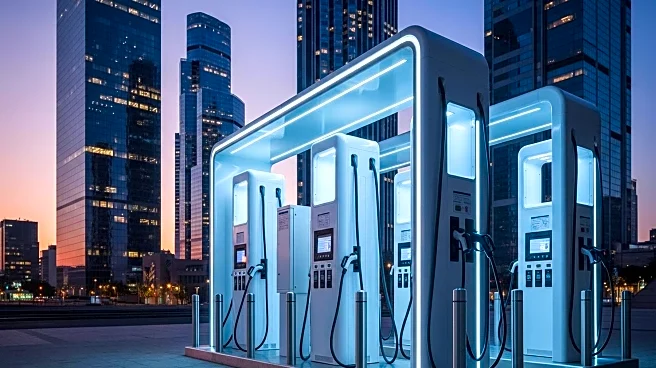What's Happening?
The U.S. electric vehicle (EV) industry is experiencing significant changes following the expiration of federal tax credits on October 1, 2025. Previously, buyers could receive up to $7,500 for new EV purchases and $3,000 for used EVs, along with incentives for leases. The One Big Beautiful Bill Act, passed in July, eliminated these credits as part of broader tax cuts and spending changes. Automakers like Hyundai are responding by offering promotions, such as price cuts on the 2026 Ioniq 5, to offset the loss of federal incentives. Additionally, states like Colorado are increasing their own tax credits to encourage EV purchases.
Why It's Important?
The removal of federal tax credits is expected to impact EV sales negatively, as these incentives were a significant driver of consumer interest. Automakers are attempting to mitigate this by offering their own promotions and leveraging state incentives. The situation highlights the challenges the U.S. faces in keeping pace with global EV adoption, particularly as China and the EU continue to advance their electrification efforts. The industry is at a critical juncture, with the potential for a 'soft landing' in sales due to these compensatory measures.
What's Next?
Automakers are expected to continue adjusting their strategies to maintain sales momentum. The introduction of new and redesigned EV models could help sustain consumer interest. Industry experts suggest focusing on consumer education about the benefits of EVs, such as lower fuel and maintenance costs, to drive adoption. The market is likely to see a stabilization in EV sales, with automakers and states playing a crucial role in shaping the future landscape.
Beyond the Headlines
The shift away from federal incentives may lead to increased innovation and competition among automakers as they seek to attract consumers through other means. This could result in more diverse and affordable EV options, potentially accelerating the transition to electric mobility in the long term.









